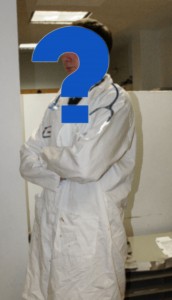
Drue Sokol, Photo Editor
A few months ago, before I decided to venture 3,000 miles away from home to study here, I read an essay by Paul Graham entitled “How To Do What You Love.” I’m not going to lie. At the moment, it wasn’t life changing or revolutionary for me in the slightest way. Sure, I agreed with the point that the author was trying to get across, but it seemed like it stated the obvious. However, after meeting a lot of people here on campus and talking to college students from home it now seems like the message isn’t that obvious after all.
Before I go on, I want to reflect on some points Graham discussed, particularly about the things that drive certain people into their prospective careers. The author presents prestige and greed as two “sirens” that steer people from what they truly love. For instance, being president of the United States might seem like the greatest thing ever. After all, the position is highly esteemed and financially rewarding — with an annual salary of $400,000, last time I checked. Of course, the job is obviously not the most enjoyable, at least not to the most of us. If you don’t believe me, think about being responsible for your little brother. Now multiply that by 307,006,550 (the population of the United States, in case you were wondering).
A more realistic example, and unfortunately, one that is all too prevalent, is the case of the doctor. An unnecessarily huge number of people enter college with the intent of becoming medical practitioners. I’m not saying that’s a bad career. However, most people do it for all the wrong reasons. They want to do it with the sole intent of being respected by everyone and making fat wads of cash. And they do this regardless of whether they enjoy it or not.
Some people might say there’s no problem with this, but to me, this is awful. First of all, if a person does not take pleasure in being a doctor at all they will dread going to work everyday, for decades, until retirement (or death). I don’t know about you, but this is not a life I would like to lead.
That’s not all, though. This grumpy doctor will be responsible for the well-being of his patients. Now, this hypothetical person might still be able to perform well, even though treating a patient might be like lying on a pit of burning coals. However, not all people can do that.
When I go to the doctor, I want the person behind the stethoscope to diagnose me well. I mean, my life is at stake here.
Now, I’m not saying every pre-med at UR should change majors. However, chances are there are a few who don’t really want to be doctors. Sure, they can graduate with ease and grind their way through med school, but it’s not worth it. And this is not limited to the medical profession. This goes for a lot of majors — some people study what they do for the wrong reasons. They’re motivated by their wallets instead of their hearts. Personally, I’ve met too many people like this.
In the article, Paul Graham gave a good litmus test for determining whether or not you really love what you do. If you’re willing to wait tables to follow your interests in your spare time, then you love your interests for sure. If you don’t then chances are you might not really love what you do.
Maybe that’s a little extreme, but you get the point.
Diaz is a member of
the class of 2015.

